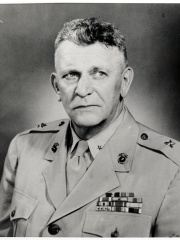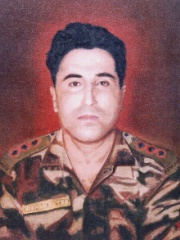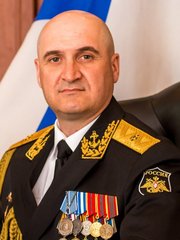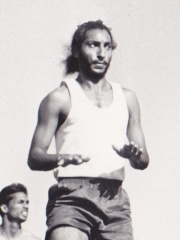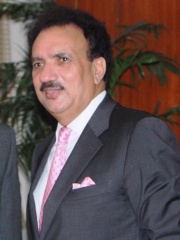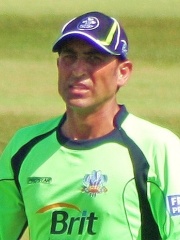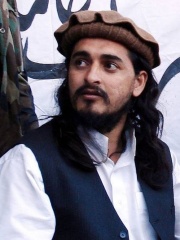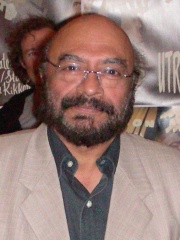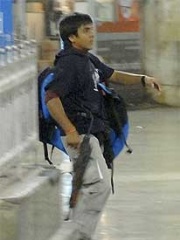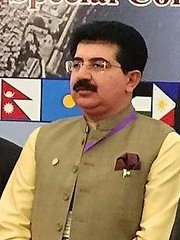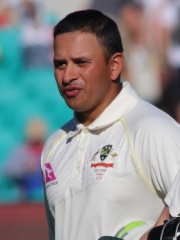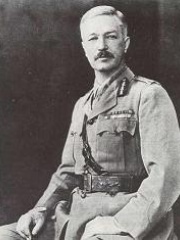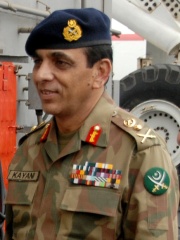Military Personnel
Asim Munir
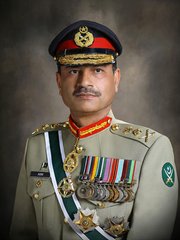
 Asim Munir
Asim Munir
His biography is available in 14 different languages on Wikipedia. Asim Munir is the 2,097th most popular military personnel, the 181st most popular biography from Pakistan and the 3rd most popular Pakistani Military Personnel.
Asim Munir is most famous for serving as the Chief of Army Staff of Pakistan, a position he assumed on November 29, 2022. He is notable for his previous roles in military intelligence and his leadership during significant military operations.
Memorability Metrics
Page views of Asim Munir by language
Among Military Personnels
Among military personnels, Asim Munir ranks 2,097 out of 2,058. Before him are Max Lemke, Princess Salma bint Abdullah, Murder of Gurgen Margaryan, Harry B. Liversedge, Michael A. Monsoor, and Vikram Batra. After him are Alexey Milchakov, Valeriy Chybineyev, Vladlen Tatarsky, Igor Osipov, Michael P. Murphy, and Fernando Pereira.
Most Popular Military Personnels in Wikipedia
Go to all RankingsMax Lemke
1895 - 1985
HPI: 43.24
Rank: 2,091
Princess Salma bint Abdullah
2000 - Present
HPI: 43.20
Rank: 2,092
Murder of Gurgen Margaryan
1978 - 2004
HPI: 43.15
Rank: 2,093
Harry B. Liversedge
1894 - 1951
HPI: 43.00
Rank: 2,094
Michael A. Monsoor
1981 - 2006
HPI: 42.97
Rank: 2,095
Vikram Batra
1974 - 1999
HPI: 42.92
Rank: 2,096
Asim Munir
HPI: 42.81
Rank: 2,097
Alexey Milchakov
1991 - Present
HPI: 42.44
Rank: 2,098
Valeriy Chybineyev
1988 - 2022
HPI: 42.38
Rank: 2,099
Vladlen Tatarsky
1982 - 2023
HPI: 41.97
Rank: 2,100
Igor Osipov
1973 - Present
HPI: 41.71
Rank: 2,101
Michael P. Murphy
1976 - 2005
HPI: 41.47
Rank: 2,102
Fernando Pereira
1963 - Present
HPI: 41.25
Rank: 2,103
In Pakistan
Among people born in Pakistan, Asim Munir ranks 181 out of NaN. Before him are Rubin Okotie (1987), Masood Azhar (1968), Prithipal Singh (1932), Rehman Malik (1951), Younis Khan (1975), and Chris Anderson (1957). After him are Hakimullah Mehsud (1979), Govind Nihalani (1940), Ajmal Kasab (1987), Saba Mahmood (1961), Sadiq Sanjrani (1970), and Usman Khawaja (1986).
Others born in Pakistan
Go to all RankingsRubin Okotie
SOCCER PLAYER
1987 - Present
HPI: 43.56
Rank: 175
Masood Azhar
POLITICIAN
1968 - Present
HPI: 43.47
Rank: 176
Prithipal Singh
ATHLETE
1932 - 1983
HPI: 43.46
Rank: 177
Rehman Malik
POLITICIAN
1951 - 2022
HPI: 43.40
Rank: 178
Younis Khan
CRICKETER
1975 - Present
HPI: 42.87
Rank: 179
Chris Anderson
BUSINESSPERSON
1957 - Present
HPI: 42.85
Rank: 180
Asim Munir
MILITARY PERSONNEL
HPI: 42.81
Rank: 181
Hakimullah Mehsud
EXTREMIST
1979 - 2013
HPI: 42.59
Rank: 182
Govind Nihalani
FILM DIRECTOR
1940 - Present
HPI: 42.35
Rank: 183
Ajmal Kasab
EXTREMIST
1987 - 2012
HPI: 42.02
Rank: 184
Saba Mahmood
ANTHROPOLOGIST
1961 - 2018
HPI: 41.89
Rank: 185
Sadiq Sanjrani
POLITICIAN
1970 - Present
HPI: 41.56
Rank: 186
Usman Khawaja
CRICKETER
1986 - Present
HPI: 41.20
Rank: 187
Among Military Personnels In Pakistan
Among military personnels born in Pakistan, Asim Munir ranks 3. Before him are Reginald Dyer (1864), and Ashfaq Parvez Kayani (1952).
Reginald Dyer
1864 - 1927
HPI: 66.45
Rank: 1
Ashfaq Parvez Kayani
1952 - Present
HPI: 43.59
Rank: 2
Asim Munir
HPI: 42.81
Rank: 3



